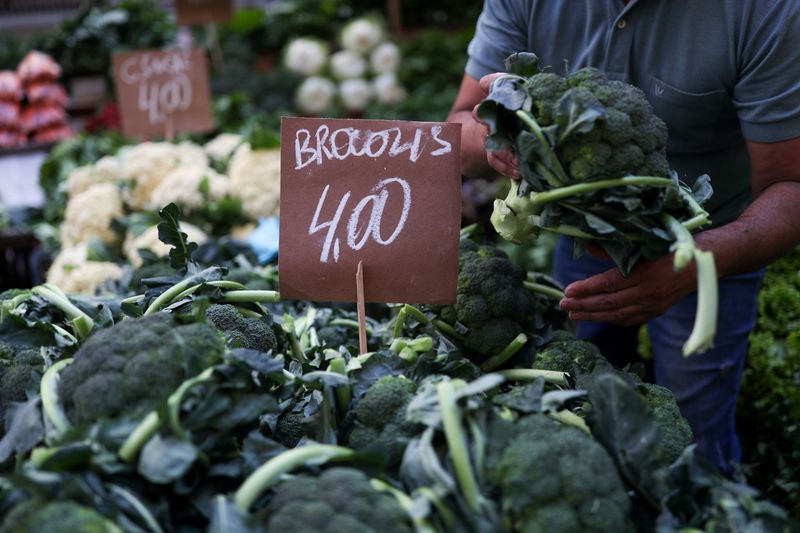SAO PAULO (Reuters) - Brazil's annual inflation came in slightly below market forecasts in December but still ended 2024 above the upper limit of the central bank's target range, with policymakers tightening monetary policy as they vow to bring prices back to their goal.
In Latin America's largest-economy, 12-month inflation closed last year at 4.83%, statistics agency IBGE said on Friday, below both the 4.88% expected by economists polled by Reuters and the previous month figure of 4.87%.
Despite the modest easing in the headline data, economists believe the figure will not prevent the local central bank from pressing ahead with interest rate hikes.
The bank had previously said inflation was all but certain to end 2024 above its 1.5% to 4.5% target range, a level it expects to remain in place until the third quarter before a decline starts.
Policymakers at the bank have faced a challenging scenario marked by robust activity, a tight labor market and unanchored inflation expectations despite projections of a more aggressive rate path through this year.
They unanimously voted to accelerate their tightening pace with a 100 basis-point hike last month, bringing interest rates to 12.25%, and signaled matching moves for the next two meetings as they seek to reach the official 3% inflation target.
"There is little in this IPCA release that will prevent (interest rate-setting committee) Copom following through with its guidance at its meeting in December," Capital Economics' deputy chief emerging markets economist Jason Tuvey said.
In December alone, IBGE data showed, consumer prices as measured by the benchmark IPCA index rose 0.52%, slightly below the 0.57% increase expected in the Reuters poll but accelerating from the previous month's 0.39% rise.
The monthly figure was driven by higher food and beverage costs, which rose 1.18% in the period. Transportation and clothing prices were also up, the statistics agency said, while housing costs dropped.

"This is a relatively positive end to the year, but it offers little comfort as the inflation outlook has deteriorated significantly," Pantheon Macroeconomics' chief Latin America economist Andres Abadia said.
"Leading indicators and unfavorable inertia suggest inflation will remain uncomfortably high in the coming months, compelling the Copom to continue tightening rates."